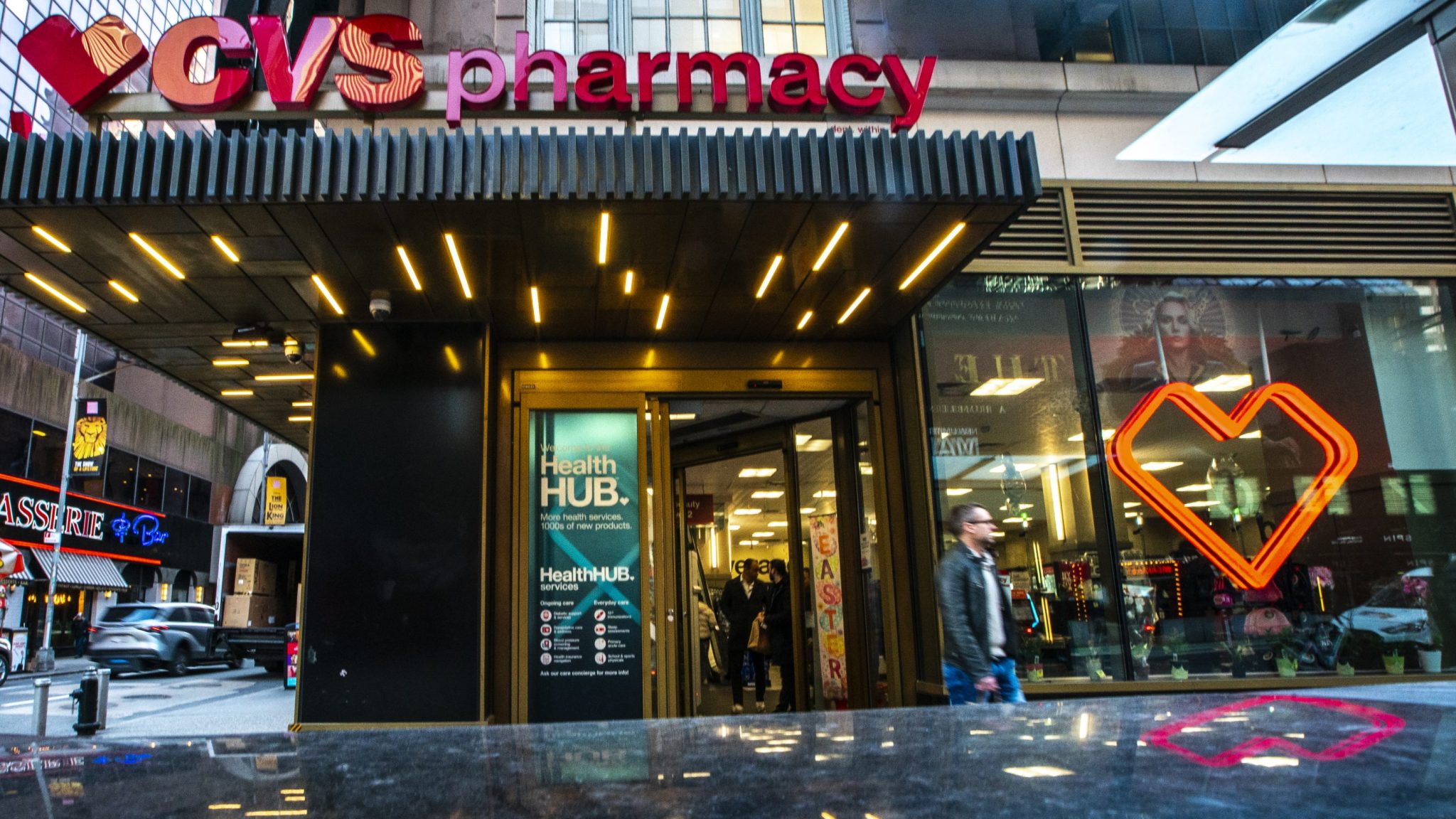Good morning. CVS Health has abruptly appointed a new CEO as its stock performance has sagged amid a rise in medical costs. The company, No. 6 on the Fortune 500, announced on Friday that Karen Lynch, CEO since February 2021, stepped down in agreement with the company’s board of directors. David Joyner was promoted to president and CEO, effective Oct. 17. Joyner was most recently EVP of CVS Health and president of CVS Caremark.
Headquartered in Woonsocket, R.I., CVS owns the country’s largest pharmacy chain with more than 9,000 stores. By late 2022, Lynch helped lift CVS’s share price from $70 to roughly $110, and investors were onboard with her new strategy: Making CVS a one-stop shop for basic care, Fortune’s Shawn Tully reports. And for preventative care, CVS planned to store tons of data on the patients’ condition at its Aetna insurance unit.
Lynch’s vision was to address the expensive, largely consumer-unfriendly health care system. “But Lynch couldn’t fully deliver on the paradigm that’s already starting to upend the current regime,” Tully writes in a new article.
CVS’s stock price has dropped by more than 20% this year amid Medicare challenges within Aetna as medical costs increased, and on top of that, there was potential activist investor action.
“We are not surprised by the management change given the execution shortfalls at CVS, especially at the Aetna medical insurer that Lynch previously led,” Julie Utterback, a senior equity analyst for Morningstar, published in a note on Friday.
As the new CEO at CVS, Joyner’s strategic partner will be CFO Tom Cowhey, who was promoted to the role in January after serving as interim CFO. Cowhey, formerly the SVP of corporate finance, joined CVS in February 2022.
CVS is pursuing a multiyear opportunity to deliver $2 billion in savings, and that will involve cutting less than 1% of its workforce, or around 2,900 workers, and investing in technologies. Cowhey said on CVS’s Q2 earnings call that in 2025, the company expects savings from this initiative to drive at least $500 million of adjusted operating earnings.
I asked Utterback the top issues Cowhey and Joyner will need to address to improve the company. Since most of the recent guidance shortfalls are related to the Aetna medical insurance operations, better controls on that business in particular are needed regarding underwriting risk and forecasting medical costs in key end markets, like…
Click Here to Read the Full Original Article at Fortune | FORTUNE…


